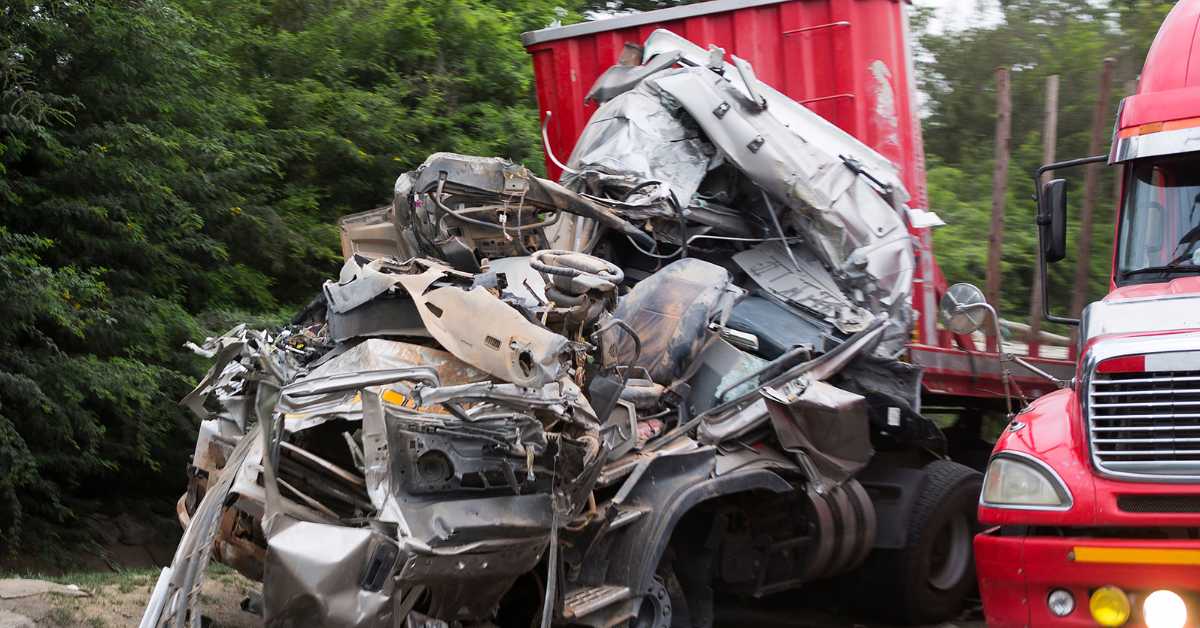How Should I Preserve Evidence After a Truck Accident?

Truck accidents involve property damage and, quite often, serious injuries, so it makes sense that you’d like to seek damages for a truck driver’s negligence. If you have very little evidence of what happened during the truck crash, though, it’s tough to prove what happened. That could cause the insurance company to reduce your settlement or deny your claim.
Truck accident evidence can vanish quickly if you don’t take steps to preserve it. Here’s how to do so.
Take Photos of the Accident Scene
Pictures can serve as invaluable evidence in truck accident cases. Taking photos may not be the first thing on your mind after a crash, but you should try to do so if possible. These pictures can be important proof for the insurance company.
Take pictures of your car and the truck that hit you from different angles. You should also capture photos of the truck’s license plate, tire conditions, and any identifying marks on the trailer. Snap pictures of the driver, their commercial driver’s license, and insurance card, too.
Capture pictures of anything you think may have contributed to the wreck. That might include bad weather conditions, debris in the road, broken stop lights, or road signs blocked by branches.
Talk to Witnesses
It’s important to look for witnesses right after an accident because you may never have a chance to speak with them again. If another driver pulled over to help, ask them what they saw of the accident. If the crash happened on a busy road lined by stores or restaurants, head inside a few and ask whether anyone saw the accident.
Record each witness’s name and phone number so your lawyer can call them later.
Make a Written Report
Many people think the police report will suffice as truck accident evidence. It’s helpful, but a written first-hand account is also incredibly useful. Make a note of:
- The road or intersection where the accident happened
- What you were doing right before the crash
- The truck driver’s behavior before, during, and after the accident
- Weather and road conditions
- Whether the truck driver seemed impaired by drugs, alcohol, or fatigue
Request the Truck’s Black Box Data
Some of the strongest evidence you can preserve will come from the truck. Trucks have an event data recorder, called a black box, that records critical details that could make or break your case. These data include:
- The driver’s speed and direction
- Steering wheel movement
- Gear shifts
- Sudden braking
- How long the trucker had been on the road
The driver’s trucking company also has access to key evidence you must preserve, such as:
- Truck inspection and maintenance reports
- Daily driver logs
- Truck repairs
- Information about the driver’s hiring and training
- Whether the driver has been in other accidents
Of course, the trucking company won’t hand over this evidence willingly. Some may even tamper with the black box data or try to erase incriminating evidence, despite federal law requiring trucking companies to keep this data for six months.
Your lawyer can send the trucking company a spoliation letter to preserve the evidence. The company cannot legally dispose of any evidence listed in the letter. Your attorney may also want to file a restraining order, preventing the company from destroying evidence until the case ends.
Contact an Experienced Truck Accident Attorney
If you intend to seek damages, preserving truck accident evidence is critical. One way to do this is by hiring a skilled truck accident attorney to prevent the trucking company from destroying evidence.
If you or a loved one has been in a truck accident, call 1-800-LAW INFO to schedule your free consultation today. Our skilled truck accident attorneys at Parker Waichman LLP can help you understand your rights.
